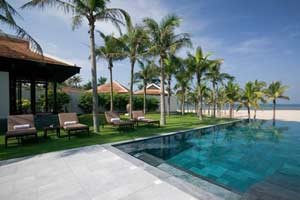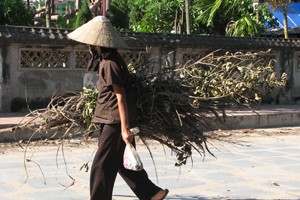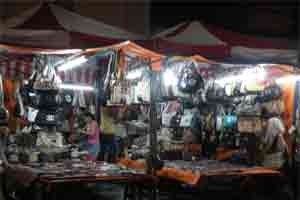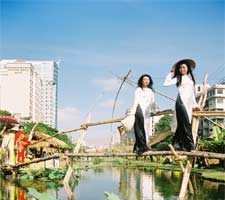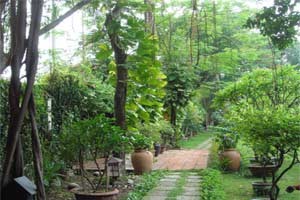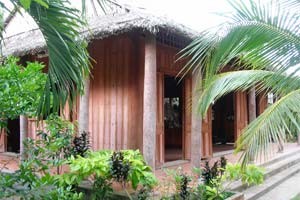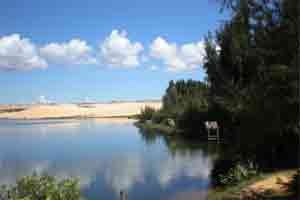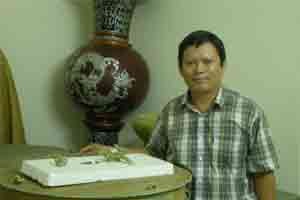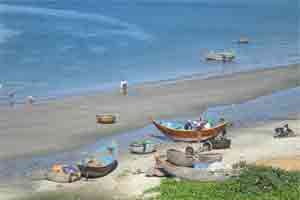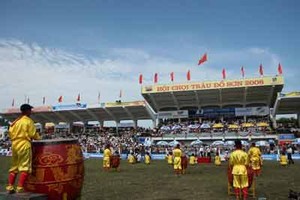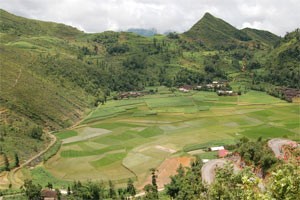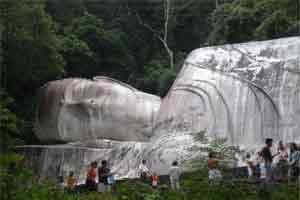Geomancers say, and residents agree, that the Ho Tay or West Lake has those qualities of the earth than can make the fortune of a person or a city. It is the Long Mach, or Dragon Flow, of that piece of earth, and not merely fortuitous coincidence, that the capital city of Ha Noi is so rich in history and culture.
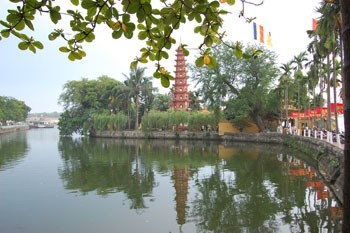
The West Lake, then, is a central part of the legends surrounding the foundation of the Vietnamese state, and a reflector of its history that spans millennia.
Scholar Nguyen Vinh Phuc once wrote that the West Lake is one with the strongest supernatural powers in the country. He maintained that the cultural, historical and spiritual values embedded here are higher than at the Guom Lake (The Lake of the Sword which is in the center of Ha Noi). Before the French entered Viet Nam, the Guom Lake was very small and so dense with weeds that residents around the lake turned the back of their houses to the lake. The French widened the Guom Lake because it was close to the Palace of Governor-General.
Meanwhile, the West Lake has had a thousand year history and is associated with the founding of the state. For Phuc, the West Lake is the major cultural area of the capital city. Seven of the villages surrounding it form seven streets of the 36 guild streets that form the Old Quarter in the capital city.
The West Lake was first called thus during the reign of King Le The Tong in 1540s. At that time the lake was called Dam Đam (full of fog). The king did not want the lake to bear any part of his own given name, Le Duy Đam, because it was taboo for any person, place or thing to be named after a member of the royal family. So he called it the West Lake because it was west of the Thang Long Citadel. Earlier, it used to be called Lang Bac due to the presence of a big wharf with strong waves. In the first year of the Christian era, two sisters Trung Trac and Trung Nhi selected the Lang Bac Lake as their base to fight against the Chinese Southern Han dynasty who had invaded Vietnam.
The oldest name of the West Lake is probably Dam Xac Cao (Swamp of Fox’s Corpse). The legend goes that Lac Long Quan, who founded Kingdom of Au Lac, as Viet Nam was known over four thousands years ago, killed a fox by increasing water in the swamp and brought a peaceful life to people.
The other name of West Lake is Kim Nguu (Golden Buffalo) that is linked the legend of a bronze casting trade village where Zen Buddhist Minh Khong asked inhabitants to cast a bronze bell to call a golden buffalo that had run from the north (China) to the south where the Viet people resided. While the buffalo was looking for its mother, it trampled a large area which turned into the lake.
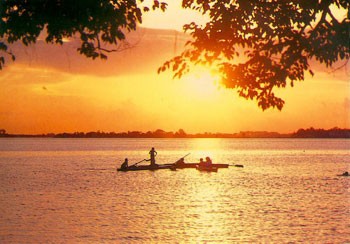
Currently geologists have found that West Lake and the adjacent Truc Bach Lake are the vestiges of the Hong River (Red River) before it changed its flow. Many elders around the lake think that the bubbling water seen sometimes on the lake surface is a result of flooding in the Hong River.
Poet Cao Ba Quat passionately called the lake Xi Shi, one of the renowned Four Beauties of ancient China. Xi Shi is beautiful throughout the four seasons. So is West Lake. The lake is bright with peach blossoms in spring, fragrant with lotus flowers in the summer, lost in the autumn mist, and meditative in the winter.
In the heart of many Hanoians, the West Lake is freshly beautiful all the time. The owner of a small studio in the capital city says that he always likes to take pictures of the West Lake at sunset. He has done this for twenty years and every time he raises his camera to catch the view, his heart flares up just like the very first time.
For thousands of years, the West Lake has reflected the lives of millions of people, but, caught in the current of time, and in the throes of unbridled urbanization, the color and soul of the most beautiful lake in Ha Noi is a shadow of its former self. It would be difficult for someone who is returning to Ha Noi after several years to recognize it.
Autumn is returning to the West Lake. The scent of season-ending lotuses blooming in a hurry is in the air, but seems to linger lost and unnoticed.
Xi Shi now sports a more modern look, shows off her wealth, but is no longer a graceful, comely lass.
